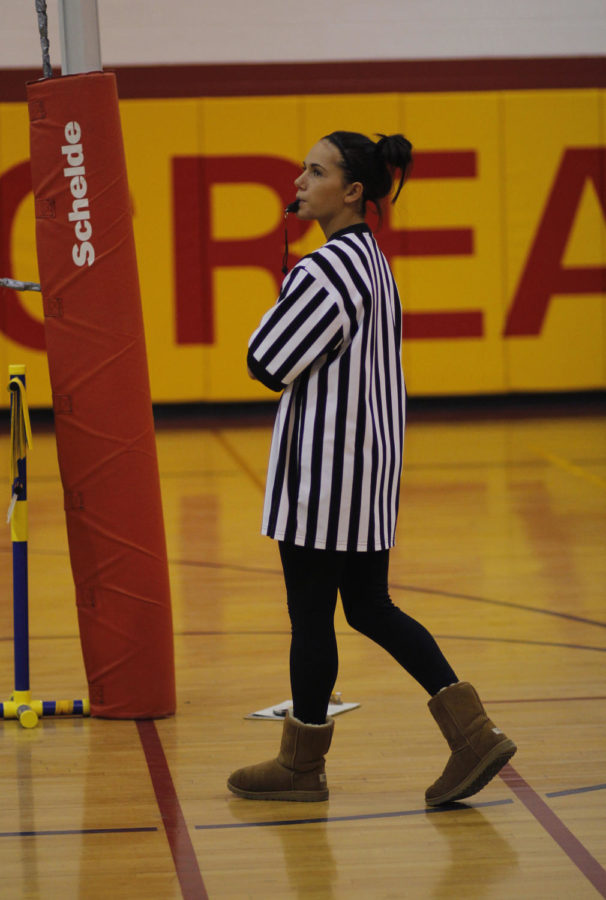Intramural officiating provides jobs, challenges to 200 students at Iowa State
December 12, 2013
The pressure is in full force for intramural referees this time of year as the flag football playoffs begin to heat up. While teams dedicate their attention to winning the championship, intramural officials admit they must step up their own game for high-stake intramural events like these.
The intramural department employs an average of 200 student officials annually. While officiating may seem like an easy task from an outside perspective, officials say refereeing games is a lot more challenging once you experience it firsthand.
Along with sports officials at the high school, college and professional levels, intramural officials here at Iowa State said players occasionally criticize them when a player believes the official made the wrong call. Most of the criticism includes foul language directed at the referees or rants on social media about how an official blew a call.
“If I do mess up, as long as I sound like I know what I’m doing, and I look like I know what I’m doing, then they can’t tell,” said Bryce Trent, sophomore in finance and intramural officiating supervisor. “And if I do mess up and my partner notices if I’m working with someone, then we’ll talk about it.”
Trent said that if a player starts arguing with an official about a call they made, the official typically will give out a warning, but he added that if a player continues to argue and directs foul language at a referee they will not hesitate to eject the player from the game.
Dazhawn Davis, sophomore in computer engineering and current intramural volleyball supervisor, said that every once in a while, a player will get a little too hyped up over a call and will want to argue back and forth with the official but said that once a student officiates enough games, players begin to recognize that person and give him or her more respect.
Televised sporting events provide audience members the opportunity to see each and every play in real time, and then multiple replays in slow motion if there is any doubt as to whether or not the referee made the right call on a play.
Officials only get one chance to see a play happen in real time and one chance to make the right call in intramurals. These challenges often go unnoticed by the audience at home watching on TV or the fans at the game provided with replays on a jumbo screen.
“The average person at home thinks they can call everything right, but when you’re actually out there doing it, it’s a whole different story because the game is a lot faster,” said intramural coordinator Nathan Pick. “A lot of people have a favorite team they’re rooting for, and they see it in one direction. You have to be impartial and have to figure out what happened versus what didn’t happen: perception versus reality.”
Despite all the challenges, Pick said officiating is also very exciting and rewarding.
“I think they find it exciting,” Pick said. “I think them being out there and calling a good game, and being fair and balanced with their peers out there playing makes them feel good about what they’re doing out there.”
There are no specific requirements when applying for a position as intramural official aside from being an ISU student, Pick said. He said it helps to have background knowledge of the sport, but it is not necessarily required.
As an official, responsibilities include showing up and officiating the game, game-management control, blowing the whistle and general refereeing duties.
Supervisors are in charge of handling any emergency or medical situations. They also are responsible for assigning officials to different games and setting up equipment along with providing first-aid kits at each game.







